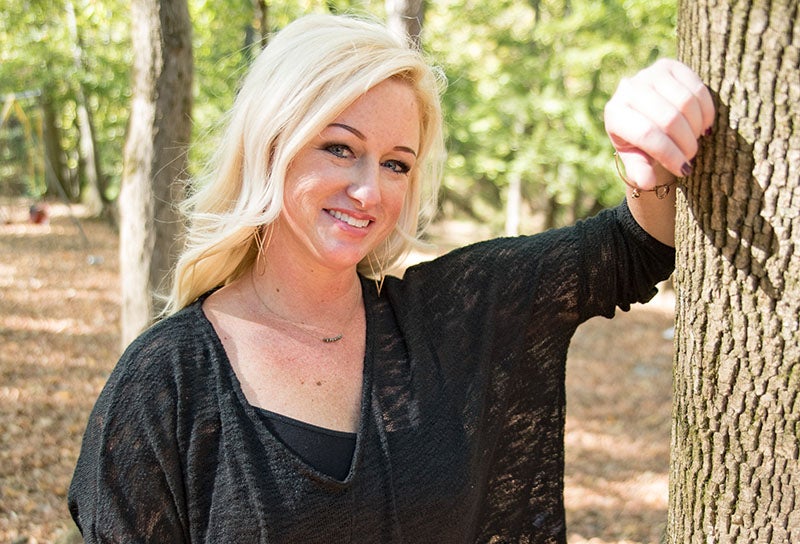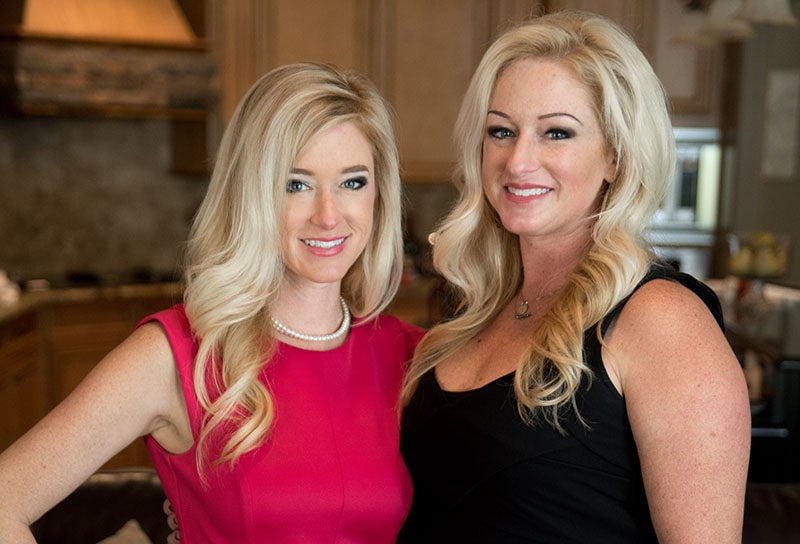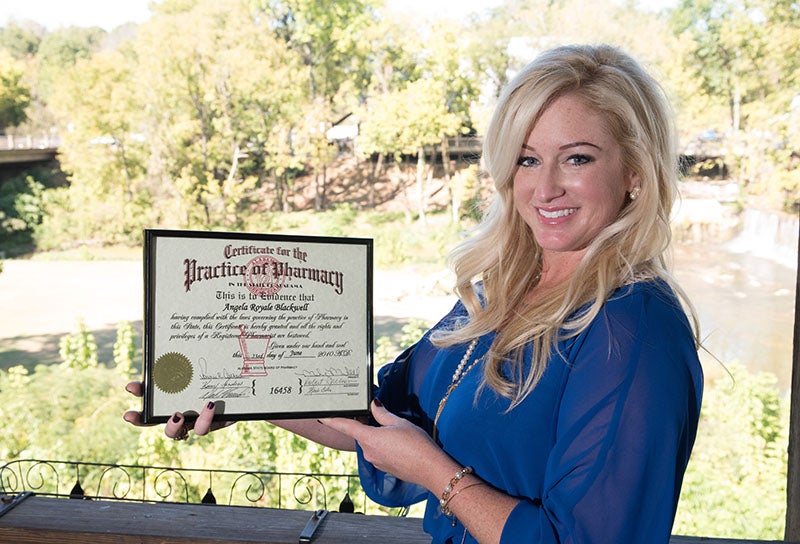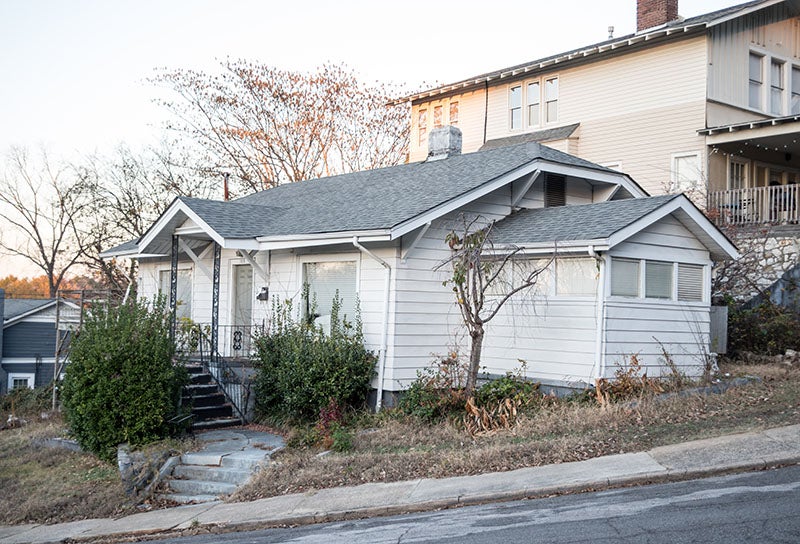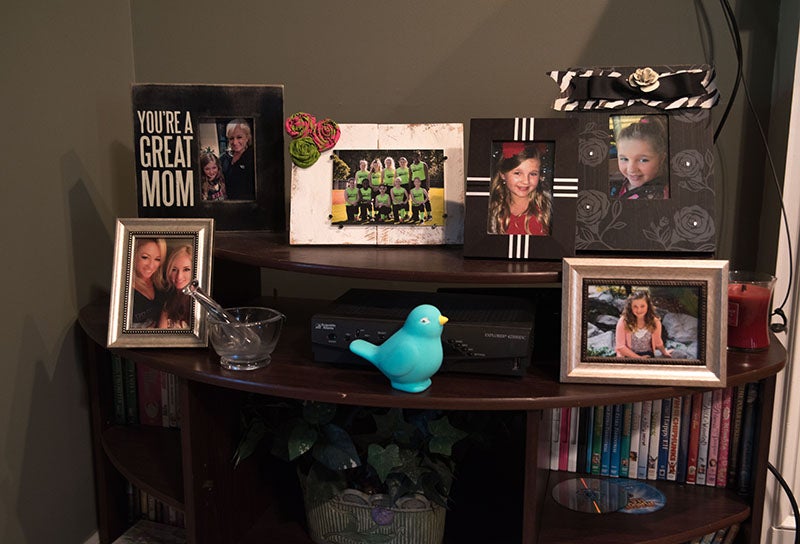PROFILE: Getting a second chance: Helena resident Angela Blackwell overcomes drug addiction to become pharmacist
Published 3:27 pm Monday, March 6, 2017
By GRAHAM BROOKS / Staff Writer
If Helena resident Angela Blackwell were to pass by you on the sidewalk in Old Town Helena, you would never guess that Blackwell spent years of her life fighting drug addiction that at one point caused her to live in a pickup truck at a variety of places in downtown Birmingham in her 20s.
Blackwell, now 38, has hit the highest of highs and the lowest of lows so far in her life and she isn’t afraid to talk about her past and how far she’s come.
In 2016, Blackwell can be seen wearing a white pharmacist lab coat, and Nov. 5, 2016 marked her 11th year of being completely clean.
In that timeframe Blackwell has a story to tell and emphasized that it wasn’t easy to get to where she is now.
Where the habits formed
In 2000, Blackwell moved from Sarasota, Fla., to attend Samford University in Birmingham. Blackwell did well in school and in 2004 graduated with a
Doctor of Pharmacy degree from the prestigious McWhorter School of Pharmacy.
Most people who have a PharmD would admit that they worked extremely hard and the classes required to earn the degree are challenging.
Blackwell passed all the required classes and earned every credit hour, but the only difference is that Blackwell did all of this while also being high on illicit drugs.
While at Samford, Blackwell began a romantic relationship and admitted that her boyfriend Johnny lived a much different lifestyle than Blackwell did at the time.
“Johnny was a construction worker and he just lived a fly-by-the-seat lifestyle,” said Blackwell. “I wasn’t exposed to that because my dad was really strict and it was my first time away from home so I basically said ‘whatever he’s doing I want to do.’ So it started with using whenever we’d go out to a party or on the weekend with OxyContin and back then it was formulated to where you could snort it to get high. We started hanging out more and more using illicit drugs and other things started to come into play such as ecstasy, marijuana and I had never even smoked a cigarette before this, so this was a whole new ballgame for me.”
Shortly after Blackwell met her boyfriend, her father passed away and Blackwell took his death really hard and admitted to using drugs as an outlet for stress and said it progressed her drug use.
Upon graduation, Blackwell began working at Walgreens Pharmacy, and while she seemed like she had her life together, Blackwell’s drug addiction became more severe and the amount of drugs needed to feel normal increased.
“It was every day, three or four times a day,” said Blackwell. “I would take out student loans just to pay for the drugs. I would get a $5,000 loan here and there just to be able to pay for that.”
A downward spiral
Shortly after graduation and starting her pharmacy career working at Walgreens, Blackwell could not pry herself from the grip of addiction, which resulted in Blackwell using her job position to continue to feed her needs.
“I was calling in fake prescriptions and would call in a lortab prescription under a fake person’s name and then I would have Johnny come pick it up,” said Blackwell. “I would call it in before I got to the store, retrieve the voicemail myself and put it in the system.”
As sneaky and discrete as Blackwell tried to be, she was eventually caught and said, “to this day, I still don’t know how I was caught.”
When the police and pharmacy board came into the store to investigate, Blackwell said she “had a sick feeling in her stomach,” and after searching the computer for a long time the police and pharmacy board had the evidence they needed and knew Blackwell had a problem.
Johnny, now Blackwell’s husband, was discovered as the one who helped Blackwell feed her addiction.
More than enough evidence was found in Johnny’s pickup truck that included other prescriptions and surveillance video of a matching license plate number when he would come pick up fake orders called in by Blackwell.
Blackwell and Johnny were charged and sent to jail as a result of calling in fake prescriptions, but even after getting caught, the pair had no intentions to stop using drugs.
The low point
After being arrested, Blackwell and Johnny continued to use illicit drugs, so much so that they stopped paying rent on the house they were living in and Blackwell’s new Honda Accord was repossessed after payments were not made.
“All at the same time, we were evicted from our home, my car got towed and we were living in his (Johnny’s) truck which is the only thing we had that was paid for,” said Blackwell. “Every week or 3-4 days we would pay for a shower at the truck stop and I just remember in that state of mind thinking, ‘wow this is great, I get to get a shower’ but it never crossed my mind that I’m paying to take a shower at a truck stop.”
At this point, Blackwell and Johnny were taking drugs such as Dilaudid, Methadone and OxyContin and were now injecting the drugs as opposed to snorting to get a greater high.
Blackwell and Johnny were homeless but still needed to fund an addiction. The two brainstormed on ways to find cash and a resolution was found.
“We would go to newly built houses and steal appliances out of them,” said Blackwell. “That’s how we were funding our habit and it was a $600 a day habit. We were spending so much money on drugs that we didn’t even have enough money for a motel room.”
At the same time Blackwell was fighting her addiction, her daughter Charleigh was born on Nov. 1, 2005. Blackwell said that the first year after Charleigh was born, the couple spent it on the run, which included living in the truck and taking Charleigh to various relatives’ homes and places where they knew she’d be cared for while Blackwell dealt with her addiction.
“We were hustling every day doing illegal drugs, stealing stuff and selling it every single day,” said Blackwell. “The construction workers at these places with newly developed homes began to realize that they were missing stuff and would file reports. They all began to realize that it was a white truck and one guy tried to chase us on a high speed chase and we eventually got away and found a garage to hide in– it was crazy.”
Finally, after a year of stealing and reselling various items for drug money, the lies and theft finally caught up to Blackwell and Johnny.
The couple went to a subdivision near Ballantrae and a contractor spotted the couple’s white truck and followed them out while calling the police.
The end result was that the police finally cornered the couple and it was time for Blackwell to face consequences for her actions.
“I had a failure to appear for court in Jefferson County because I was doing other things like getting high so I had a warrant out for my arrest,” said Blackwell.
In the end, Blackwell faced 13 felony charges including several unlawful distribution charges and receiving stolen property and also faced one misdemeanor charge.
Facing the consequences
Immediately following her arrest in 2006, Blackwell faced an uphill climb if she wanted to get her life back.
Blackwell was sent to jail for a week to sober up immediately after being arrested and was given an opportunity to go to drug court in Shelby County, which was under the direction of Circuit Court Judge Michael Joiner at the time, to which Blackwell said, “absolutely, yes I want to do it.”
Once it was time to enter the program, Blackwell did not take it seriously and once she was let back out into the real world, Blackwell did not show up for a court date, instead electing to get high.
“It only took three weeks for them to find me and bring me back to court,” said Blackwell. “Judge Joiner said ‘I really don’t know what to do with you. I’m really thinking prison might be the best place.’ When he said that, he left me in jail for four weeks and then he was finally ready to talk to me again.”
Joiner asked Blackwell if she wanted to continue to be in prison and Blackwell said no and agreed that she needed to get help.
Blackwell spent the following months in and out of work release, various rehab facilities and received several drug tests along the way.
After six months of being clean, Blackwell went back to the Shelby County Drug Court with the intention of taking it seriously this time.
The road to recovery
After continuing to progress through the drug program and passing several drug tests and attending all the required meetings, Blackwell decided to contact the pharmacy board to see what she needed to do to get her license back.
Blackwell was put in contact with Steve Moore, then a member of the pharmacy board.
Moore told Blackwell that she needed to sign up for drug testing through the pharmacy board, get the felony charges removed, which meant completing the drug court program in Shelby and Jefferson counties because charges occurred in both counties, complete theft of property court in Jefferson and Shelby counties and if she did all of these things, she could then be reconsidered to get her license back.
Blackwell accomplished all of these things while also holding a job and being drug tested for three separate programs.
“All in all I completed all of those programs and went in front of the pharmacy board,” said Blackwell. “June 2010 is when I got my license back. Two years after I graduated from Samford was spent wreaking havoc and then the other four years were spent placing the pieces all back together. During this time I also divorced Johnny, which was a really big decision and a scary one because I was a single mom at that point, but I had to make big changes.”
Life after getting clean
Soon after getting her license back, Blackwell began looking for a job and in 2010 CVS Pharmacy gave her a second chance.
“They gave me a second chance, which I’m very grateful for it,” said Blackwell. “I started working for them right away. I told them that I was going to prove to them that I can do this job really well.”
After floating to different stores for a few months, Blackwell was promoted to store manager at the CVS Pharmacy in Irondale where she worked for two years.
After that, Blackwell worked for CVS Pharmacy in Hoover and is currently working at CVS as a staff pharmacist in Southside, just minutes away from where she used to shoot up drugs a few years prior.
“It’s fun being sober and it’s not like I’m a nerd,” Blackwell said referring to being sober for 11 years. “I have fun, I have money to buy stuff, to go to a movie, eat nice food and to me that means so much more than $500 on dope per day and having nothing to show for it. Being an addict sucks. All addicts do is they think about having a normal life.”
The past three years, Blackwell has lived in Helena where she is raising her 11-year-old daughter and lives near her sister, who also lives in Helena.
“My sister had a lot to do with me getting clean, she was here with me and she was really strict on me,” said Blackwell. “When I was making progress in drug court, she would let me live with her and her husband in Southside.”
Blackwell said her sister and husband would record the miles on Blackwell’s car and map out exactly where she should be going so she would not try to sneak around to find drugs.
“Drugs don’t affect just the addict, but it affects everybody involved,” said Blackwell. “Family members may get stressed and start using or spend all their money trying to get them sober.”
In 2016, in addition to being a pharmacist, Blackwell also spends her time speaking about her story and is an advocate for a variety of programs aimed at helping addicts get their lives back on track or preventing drug abuse.
“The three main areas of focus in my life are the Washington Legislative Affairs to improve funding for people like us and veterans who come back from war and have PTSD, COMPACT 2020 and CVS One Choice,” said Blackwell. “Shelby County has one of the best drug courts in the state. Judge Joiner started a really good program and it’s very strict. If you’re late, you’re sanctioned for jail or community service and there’s no nonsense and a lot of counties are trying to replicate that program. My affiliation with the National Association of Drug Court Professionals is to promote more funding for these programs because it saved me and I want to give back to the community.”
Beyond 2016, Blackwell still wants to be a pharmacist but she wants to continue to make an impact by sharing her story.
“I still want to be a pharmacist, but I feel like the most good I could do is giving my testimony,” said Blackwell. “I find the most enjoyment in doing what I’m doing when it’s dealing with recovery. My story just goes to show you that it doesn’t matter who you are or how much willpower you have or how smart you are, drugs can affect anybody.”
More Helena




